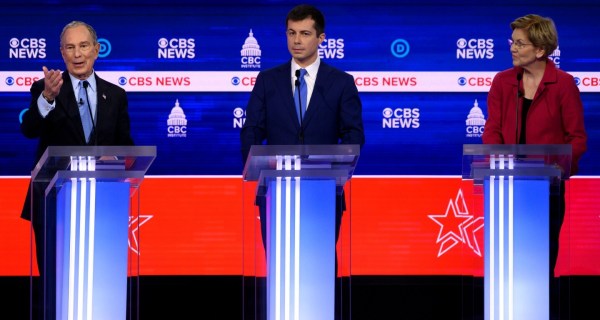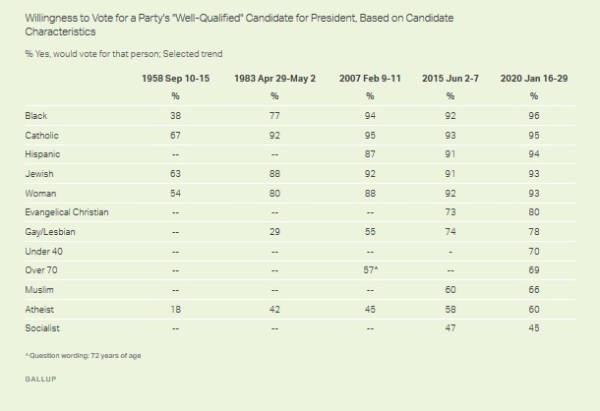Another humdinger of a week. What did you miss? The Democratic Primary is heating up, but none of the candidates seem to be asking the obvious ed question. Or how about that time Methodists burned their underwear? Or perhaps you missed Ken Ham’s angry response to a newish documentary about the Creation Museum. This week’s roundup has all that and more!
From the perspective of the 1820s, it seems like there are obvious questions Democrats should be asking about charter-school policy. In the recent debate, though, no one did. Why not? My two cents at WaPo.
a real watchdog for the needs of charter students must go further, asking whether teachers are fairly compensated and supported and whether students are treated with respect and dignity. America’s first system of free schools, designed to educate the poor, was plagued by poor compensation and training for teachers and cruel discipline for students — undermining the very purpose of education. When considering whether charter schools are good for kids or bad, today’s leaders need to start with a tough question: Do they repeat those centuries-old mistakes?
Methodists gone wild: David Swartz remembers an 1891 revival where women burned their corsets, at TGC.
It was a weird scene, the dusky evening, the crowd of religious enthusiasts quivering with excitement surrounding a fire which shot up long tongues of flames. “Throw off the garment,” shouted the revivalist. “Burn them!” cried a feminine voice in the crowd, and pushing and panting a young woman of twenty-five forced her way to the center near the bonfire. She was tugging at her dress. There was a sudden gleam of white shoulders in the glare of the firelight, and she flung her corset into the flames, saying she would die as God had made her and not as she had made herself. Her example was contagious, and in less than half an hour not a woman in the crowd wore a corset, and nothing remained in the blaze but a mass of grotesquely twisted corset steels. The excitement was too great and several women grew faint, but they had burned their corsets and were happy: The Free Methodists consider the revival a great success, and talk of carrying the war into the States.
Documentary about the Creation Museum screens on PBS: We Believe in Dinosaurs.
- The radical creationists don’t like it. At Righting America.
Ham lets loose a volley of unsubstantiated attacks, including references to “deceitful producers,” an “agenda-driven propaganda piece,” a “supposed ‘documentary,” “clever camera angles and selectively-edited interviews,” and more. But as is Ham’s wont, over half of this article is devoted to claiming that the Ark has not received huge tax breaks.
The first school deseg case, at CS.
In 1913, a railroad foreman in Alamosa tried to enroll his 11-year-old son in the school closest to the family home. The school district denied him, and instead forced Miguel Maestas to walk seven blocks across dangerous railroad tracks to what was known as the Mexican School.
 Review essay on technocracy and higher ed at NR.
Review essay on technocracy and higher ed at NR.
Both books consider the realities behind the soaring ideals in which universities drape themselves and through which they are too often uncritically imagined by the educated public. That universities are tightly entangled in political power, the production of elites, and the administration of society has been a fact for centuries, whether the curriculum was designed to produce masters of classical Latin or shareholder value. But what happened in the twentieth century to render American universities, in particular, such enthusiastic accessories to capitalist technocracy?
Colleges are closing. What will it mean for evangelical higher ed? At TGC.
having a distinctively Christian mission — much as I might value it — certainly doesn’t protect a school from the risk of closure.
First the Democrats turned against them. Then Trump dumped them. Tough times for charter schools, at NYT.
“We’re used to being favored by both sides, and not used to the controversy at the national level,” said Nina Rees, the president and chief executive of the National Alliance for Public Charter Schools.














